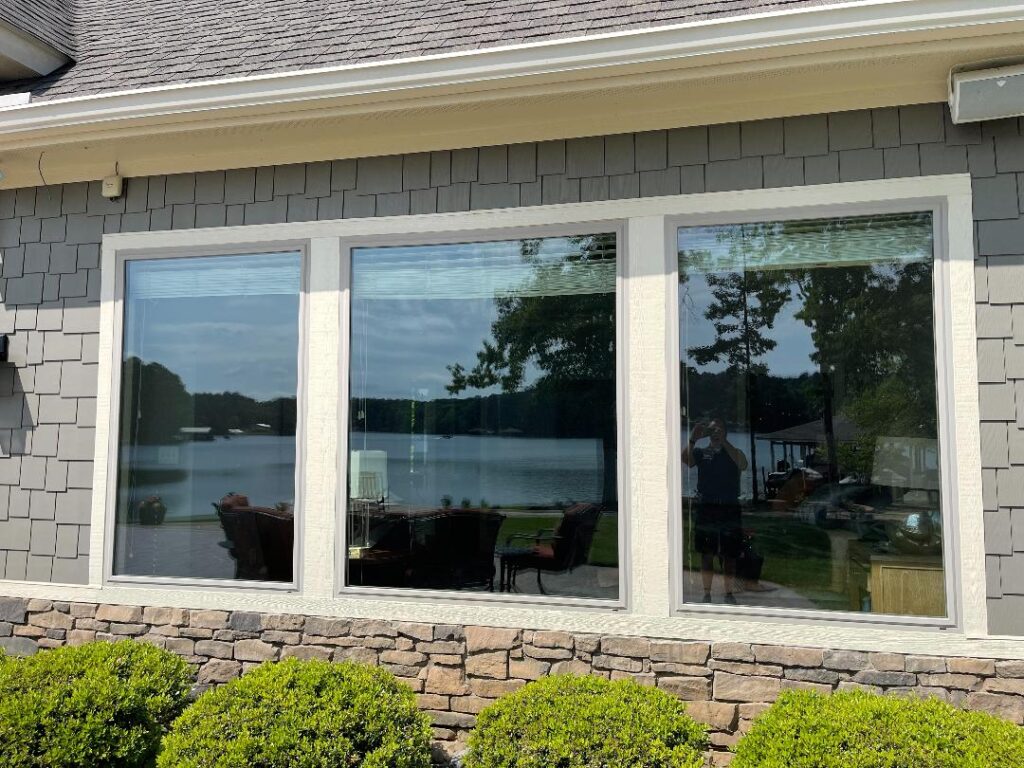How Residential Window Tint Can Decrease Energy Expenses
How Residential Window Tint Can Decrease Energy Expenses
Blog Article
Exactly How Residential Home Window Tinting Enhances Your Home's Energy Performance
Residential window tinting offers a compelling remedy for house owners seeking to boost energy efficiency within their space. By using specialized films to windows, it efficiently decreases warmth transfer, thereby stabilizing interior temperature levels and minimizing the demand for extreme home heating or cooling. This not only reduces energy intake however also provides an extra comfy setting by reducing glow. Comprehending the nuances of just how tinting works and picking the proper type for your home can be essential. Oddly, what elements should one consider before making this investment?
Comprehending Window Tinting
Comprehending home window tinting is vital for homeowners looking for to enhance both convenience and power efficiency in their space. Residential Window Tint. Home window tinting entails the application of a thin movie to the interior or outside surface area of glass home windows. This film can dramatically regulate the amount of sunshine and warmth that goes into a home, thus influencing indoor climate conditions
There are various kinds of home window tinting movies offered, each with unique residential properties. The efficiency of home window tinting is usually determined by its Visible Light Transmission (VLT) percentage, which indicates how much light can pass through the movie.
Advantages of Energy Performance
Home window tinting not only enhances appearances yet also plays a substantial role in enhancing power performance within residential rooms. By reducing warm transfer via windows, colored movies develop a more steady interior environment, which can lead to considerable decreases in power intake for heating and air conditioning. This power efficiency equates into lower utility expenses, offering property owners with significant lasting cost savings.

Furthermore, home window tinting enhances the comfort of living spaces. By decreasing glare and blocking unsafe UV rays, tinted home windows create an even more positive environment, which can lead to enhanced wellness for passengers. The defense versus UV rays also aids preserve furnishings and flooring from fading, adding to the longevity of home items.
How Tinting Functions
Tinting films operate through a combination of advanced materials and innovations designed to control the amount of solar energy going into a home. Mainly composed of polyester, these movies frequently incorporate ceramic or metallic bits that show and take in warm. This double ability allows them to dramatically minimize the infiltration of ultraviolet (UV) rays and infrared radiation while allowing noticeable light to go through.
The effectiveness of home window tinting is measured by its solar warm gain coefficient (SHGC), which shows just how much solar power is sent via a fantastic read the window. Reduced SHGC worths are preferable as they denote higher warm being rejected. Additionally, home window colors can include a variety of shades, permitting home owners to personalize their aesthetic preferences while boosting energy effectiveness.
Additionally, these films act as an obstacle, preventing warmth loss during chillier months by showing interior heat back right into the home. This thermal insulation result complements the cooling benefits gained throughout warmer months, adding to a well balanced interior climate year-round. By managing solar power properly, property window tinting not only boosts comfort yet also plays an important function in decreasing energy intake and reducing energy bills.
Picking the Right Tint

There are various types of home window movies readily available, including dyed, metalized, and ceramic. Ceramic films supply superb heat control without compromising exposure and are extremely long lasting, making them a preferred selection.
Noticeable light transmission (VLT) is another important aspect, as it suggests the quantity of all-natural light that can pass via the colored glass. Homeowners should select a tint with a VLT that matches their lighting preferences while still providing sufficient glare reduction.
Additionally, evaluating the solar heat gain coefficient (SHGC) can help determine how well a tint can obstruct warmth from sunshine. A reduced SHGC suggests much better heat control, ultimately enhancing power performance.
Setup and Maintenance Tips
Correct setup and maintenance are vital parts in making the most of the advantages of property window tinting. To achieve ideal results, it is advisable to employ official website a qualified specialist for setup. This ensures that the color is applied appropriately, preventing air bubbles, wrinkles, or imbalance that could endanger performance. Specialists likewise make use of specialized tools and strategies, which can improve the sturdiness and performance of the tint.
Complying with installment, upkeep is important to extend the life of the home window movie. It is advised to wait at the very least 30 days prior to cleaning the tinted windows to allow the sticky to treat completely.
In addition, normal inspections are advantageous. Inspect for any type of peeling or bubbling, which might suggest incorrect setup or use with time - Residential Window Tint. Resolving these concerns without delay can prevent further damages and keep power performance. By sticking to these setup and upkeep ideas, house owners can guarantee their window tinting continues to offer significant energy financial savings and convenience for several years ahead.
Conclusion
In conclusion, household window tinting offers as an effective option for enhancing energy performance within homes. By decreasing warm transfer and blocking dangerous UV rays, window movies contribute to reduce power intake and enhanced interior convenience.
Window tinting includes the application of a slim movie to go the interior or exterior surface area of glass home windows. By reducing warm transfer via home windows, tinted films produce an extra secure indoor climate, which can lead to considerable decreases in power consumption for heating and cooling.The efficiency of home window tinting is gauged by its solar heat gain coefficient (SHGC), which indicates exactly how much solar power is sent via the window. By managing solar energy successfully, household home window tinting not only enhances comfort but likewise plays a crucial duty in reducing energy consumption and reducing energy bills.
By reducing warm transfer and blocking unsafe UV rays, home window movies add to decrease power usage and enhanced indoor comfort.
Report this page